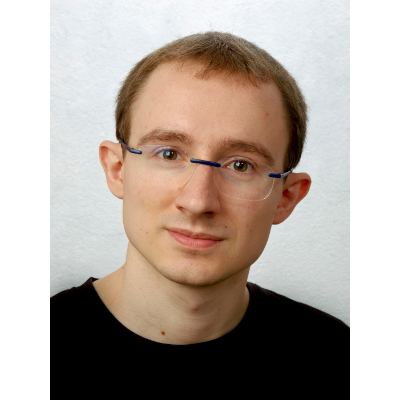Daniele Panozzo
- Affiliation: Courant Institute of Mathematical Sciences - New York University
- Web Site: https://cims.nyu.edu/people/profiles/PANOZZO_Daniele.html
- Email: panozzo [at] nyu.edu
- Title: Robust Geometry Processing for Physical Simulation
- Date & room: Friday, 7th July at 9:00 - 10:00 (Room: San Salvatore)
Abstract
The numerical solution of partial differential equations (PDE) is ubiquitously used for physical simulation in scientific computing, computer graphics, and engineering. Ideally, a PDE solver should be opaque: the user provides as input the domain boundary, boundary conditions, and the governing equations, and the code returns an evaluator that can compute the value of the solution at any point of the input domain. This is surprisingly far from being the case for all existing open-source or commercial software, despite the research efforts in this direction and the large academic and industrial interest. To a large extent, this is due to lack of robustness and generality in the geometry processing algorithms used to convert raw geometrical data into a format suitable for a PDE solver. I will discuss the limitations of the current state of the art, and present a proposal for an integrated pipeline, considering data acquisition, meshing, basis design, and numerical optimization as a single challenge, where tradeoffs can be made between different phases to increase automation and efficiency. I will demonstrate that this integrated approach offers many advantages, while opening exciting new geometry processing challenges, and that a fully opaque meshing and analysis solution is already possible for elasticity problems with contact. I will present a set of applications enabled by this approach in reinforcement learning for robotics, force measurements in biology, shape design in mechanical engineering, stress estimation in biomechanics, and simulation of deformable objects in graphics.
Biography
Daniele Panozzo is an Associate Professor of Computer Science at the Courant Institute of Mathematical Sciences in New York University. Prior to joining NYU he was a postdoctoral researcher at ETH Zurich (2012-2015). Daniele earned his PhD in Computer Science from the University of Genova (2012) and his doctoral thesis received the EUROGRAPHICS Award for Best PhD Thesis (2013). He received the EUROGRAPHICS Young Researcher Award in 2015, the NSF CAREER Award in 2017, and a Sloan Research Fellowship in 2020. Daniele’s research group is leading the development of polyfem (https://urlsand.esvalabs.com/?u=https%3A%2F%2Fpolyfem.github.io&e=ed7a584b&h=37de3820&f=y&p=y), a simple and robust finite element library, and wild meshing (https://urlsand.esvalabs.com/?u=https%3A%2F%2Fgithub.com%2Fwildmeshing&e=ed7a584b&h=68e501cc&f=y&p=y), a 2D and 3D robust meshing library. Daniele initiated the Graphics Replicability Stamp (https://urlsand.esvalabs.com/?u=http%3A%2F%2Fwww.replicabilitystamp.org&e=ed7a584b&h=0cf389d&f=y&p=y), which is an initiative to promote reproducibility of research results and to allow scientists and practitioners to immediately benefit from state-of-the-art research results. His research interests are in geometry processing, physical simulation, and digital fabrication.
